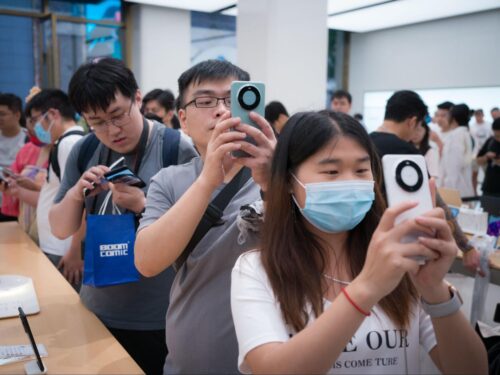Huawei and ByteDance look to Singapore as U.S. restrictions loom
Huawei and ByteDance are both approaching U.S.-imposed deadlines that could dramatically alter their business models and global reach. They are among several Chinese companies increasing their investment in Singapore to hedge against U.S.-China tension.

“Huawei’s day of reckoning could arrive next week,” Caixin reports, reminding us that U.S. Commerce Department restrictions are set to kick in on September 15 that will “force TSMC, the world’s most cutting-edge contract chipmaker, to stop supplying key chips that power Huawei’s high-end smartphones and telecom networking equipment.”
- As we have previously covered on The China Project, the latest restrictions on Huawei are by far the most expansive yet, and are widely perceived as an existential threat to the company.
- In addition to TSMC, a Taiwanese company, South Korean companies are also planning on cutting ties with Huawei as a result of the new restrictions: Samsung Display and LG Display will stop supplying smartphone display screens to Huawei, Reuters reports.
- Huawei is preparing to launch its own operating system, Harmony OS, onto its smartphones by next year, after the company was locked out of the official version of Android’s OS in May 2019, TechNode reports.
Washington beware: If Huawei doesn’t crash and burn, as the U.S. government seems to wish, it would almost by definition transform into a company with supply chains and revenue streams shielded from American actions, as an article in the Economist explains.
ByteDance might also face a reckoning soon: According to multiple executive orders that President Trump signed in August, the company has until September 20 to agree to a sale of the U.S. operations of its TikTok app, and until November 12 for that transaction to be completed.
- However, Beijing’s move two weeks ago today that labeled core parts of TikTok’s algorithm as “sensitive technologies” means the negotiations got more complicated, and ByteDance “probably needs beyond the U.S. executive order ban on September 20 to nail down an agreement,” Bloomberg reported this week.
- There are many ways this could go: The Trump administration could give ByteDance more time to line up the sale, there could be “some sort of restructuring of TikTok” instead of a sale, per the Wall Street Journal, or there could be unspecified “other options” on the table, a source told Politico.
- Beijing might push Trump to ban the app, reporting from Reuters today indicates: “Beijing opposes a forced sale of TikTok’s U.S. operations by its Chinese owner ByteDance, and would prefer to see the short video app shut down in the United States.”
Singapore: Springboard turned safe haven
Chinese tech companies are flocking to Singapore in response to the ever-increasing U.S.-China tension, especially around technology, the Financial Times reports.
- “Alibaba-backed Ant Group, China’s second-largest brokerage Haitong Securities, Huawei’s cloud division and Tencent-backed digital bank WeBank are among the companies that have in recent months approached Singapore’s industry groups about becoming members or partnerships,” the FT says.
- “ByteDance plans to invest billions of dollars and recruit hundreds of employees in Singapore after opting to base its Southeast Asia regional headquarters there,” Reuters reports today.
Singapore has “long been a popular first choice for Chinese companies seeking a springboard to expand internationally,” the FT points out, but its “allure has been heightened by restrictions on mainland groups in India and the U.S., and with Hong Kong increasingly susceptible to Sino-U.S. friction.”
U.S.-China economic tensions are here to stay
American firms in China are now more pessimistic than ever, according to a survey by the American Chamber of Commerce in China: “Half of all companies in a new survey expect tensions to drag on for three years or longer, up from 30% who felt that way last year,” Caixin reports.
A potential President Biden would “expand,” not draw down, American government plans “to compete in strategic high-tech sectors such as artificial intelligence, quantum computing and the next-generation 5G wireless standard,” including policies “meant to curb Chinese economic power and influence, and reduce interdependence,” advisers to President Trump’s campaign rival told the Wall Street Journal.
Two iconic American industries remain notably optimistic in China: finance and automotive. For more, see:
- Wall Street brushes off political tensions to dig deeper into China / FT (paywall)
- Goldman Sachs to buy out partner in China securities venture / Caixin (paywall)
- Successful with Chinese startups, Sequoia China launches a hedge fund / WSJ (paywall)
- Tesla and GM dominate electric car sales in China / The China Project
- Tesla plans to start exporting cars made at Shanghai gigafactory / Caixin (paywall)






